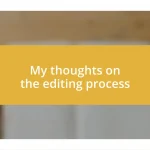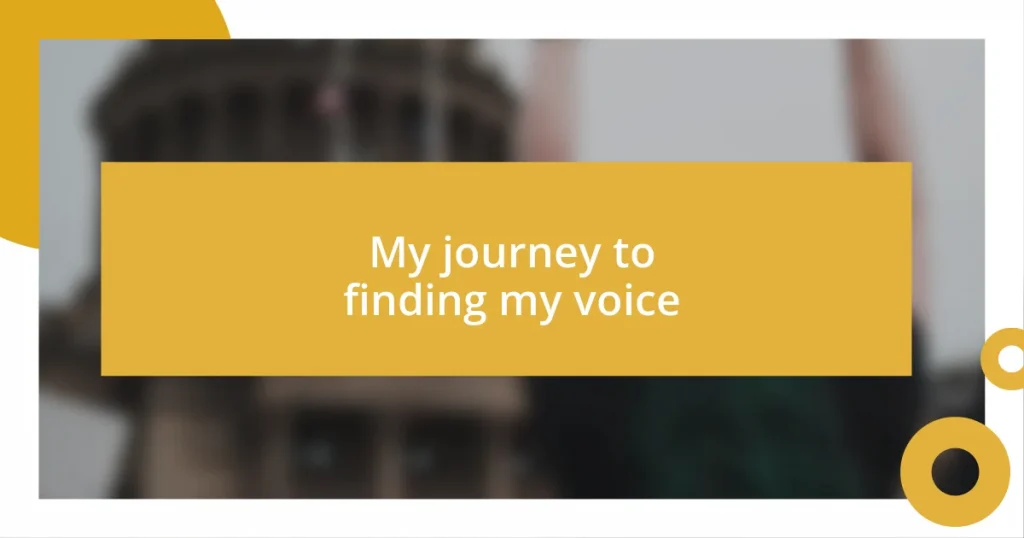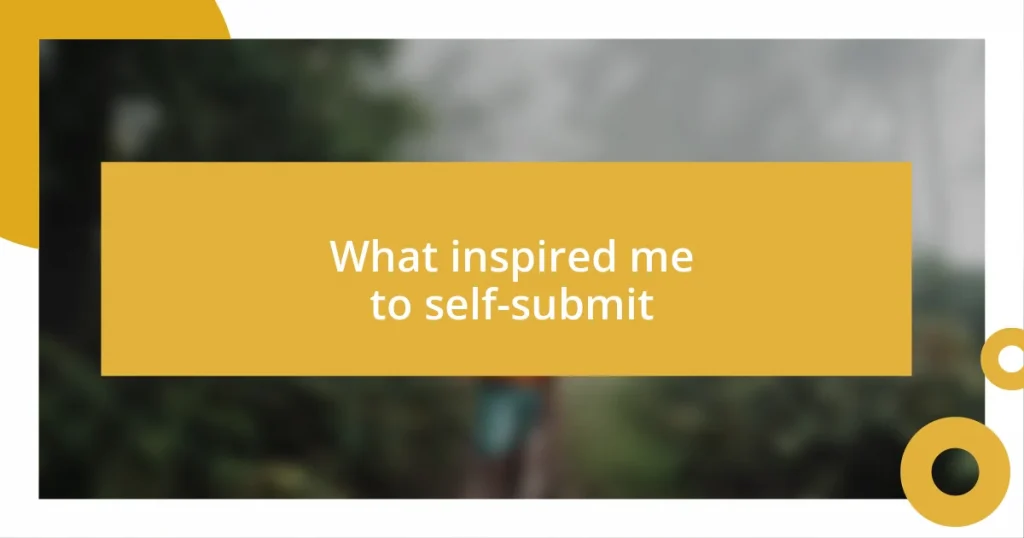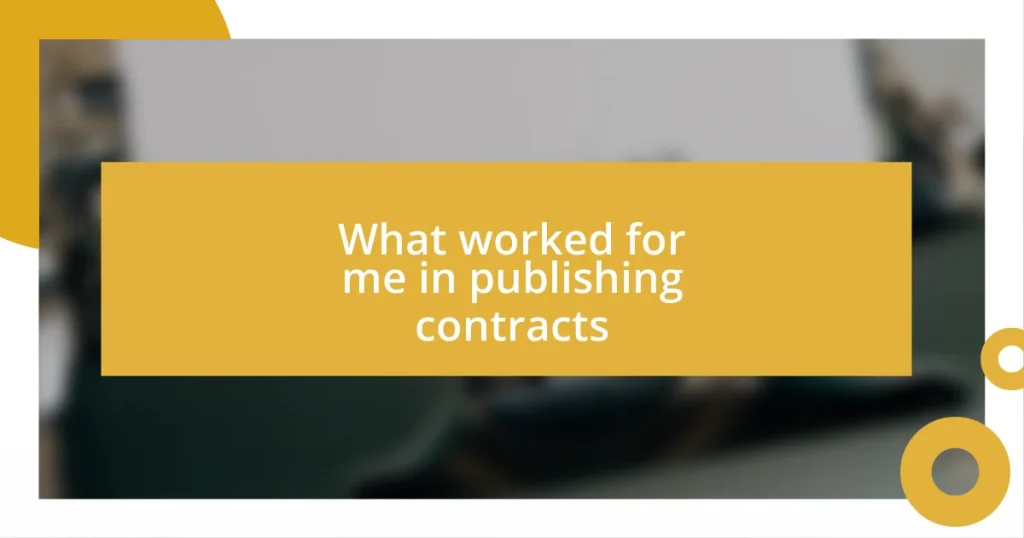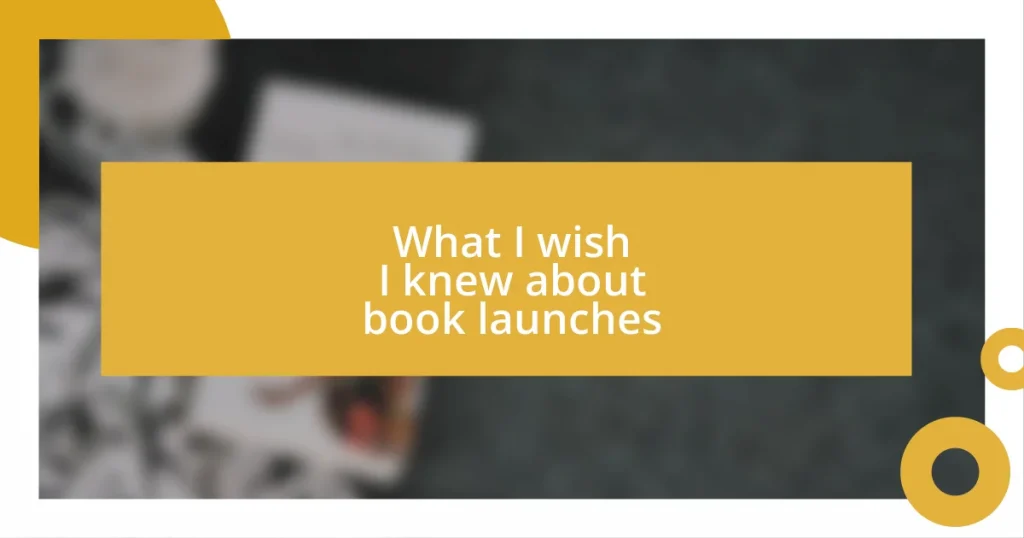Key takeaways:
- Understanding and embracing personal stories enriches one’s voice and fosters connections with others.
- Overcoming barriers such as fear and self-doubt is essential for authentic self-expression.
- Sharing your voice can create a profound impact on both yourself and your audience, fostering community and connection.

Understanding the concept of voice
Voice isn’t just about what we say; it’s about how we say it. Have you ever listened to someone speak and felt an immediate connection, even before you understood their words? That’s the power of voice—it’s infused with our personality, experiences, and authenticity. I remember the first time I shared my thoughts in a group setting; the shock of vulnerability lingered, but so did the rush of relief when others nodded in understanding.
As I navigated my journey, I realized that every individual has a unique voice shaped by their life story. It’s like using a brush to paint—a choice of colors reflects our mood, experiences, and desires. When I began to embrace my anecdotes, my voice deepened. I learned that sharing personal stories not only enriched my voice but created a bond with my audience, leaving them inspired or reflective.
Finding your voice often means peeling back layers and revealing the true you. Have you ever felt lost in someone else’s expectation? I definitely have. It was only through moments of introspection that I discovered what truly resonated with me. This journey taught me that voice is not static; it evolves as we grow and experience life more fully.

Identifying personal barriers to expression
When I think about personal barriers to expression, fear often comes to mind. I remember standing in front of a room full of peers, my heart racing as I prepared to share my thoughts. That overwhelming fear of judgment made it hard to articulate my ideas. Fear can act like an invisible wall, intimidating us and forcing silence even when our voices yearn to be heard.
Another barrier I’ve recognized is self-doubt. There were countless times when I questioned whether my opinions were valid or if others would find them worthy of consideration. I recall a moment during a team meeting when I hesitated to contribute, worried that my input would be seen as foolish. It felt like I was fighting against an internal critic. I learned that addressing these doubts head-on and finding a supportive environment to express myself helped dissipate some of that negativity.
Lastly, for many, life’s circumstances present challenges that silence their voice. Whether it’s a busy schedule or unexpected personal struggles, I’ve experienced how these external factors can stifle my ability to engage. There were periods when I felt so overwhelmed by responsibilities that setting aside time to reflect on my thoughts seemed impossible. Acknowledging and addressing these circumstances is crucial for any journey toward authentic expression.
| Barrier | Description |
|---|---|
| Fear | Anxiety over judgment that inhibits expression. |
| Self-doubt | Lack of confidence in one’s opinions and ideas. |
| Life Circumstances | External pressures that limit time and mental space for expression. |

Techniques for discovering inner voice
Finding your inner voice often requires deliberate techniques that promote self-discovery. One of my favorites is journaling. Whenever I pour my thoughts onto the pages, I uncover insights that I didn’t even know were there. It’s like holding up a mirror to my feelings and beliefs. Another method I’ve found effective is mindfulness meditation. Sitting in silence, I connect with the deepest parts of myself, allowing the chatter of the outside world to fade away.
Here are some techniques that have worked for me:
- Journaling: Write without judgment to explore your thoughts and feelings freely.
- Mindfulness Meditation: Create a quiet space to listen to your inner self.
- Creative Expression: Experiment with art, music, or writing to connect with your emotions and amplify your voice.
- Seek Feedback: Share your thoughts with trusted friends to gain different perspectives on your expression.
- Read Widely: Engaging with diverse voices can inspire you to find and refine your own.
Paying attention to the insights these practices bring can lead to profound discoveries about your true self. Each technique offers a unique pathway to help unveil the voice that’s been quietly waiting to be heard.

Building confidence to speak
My journey to building confidence in speaking truly began with small moments of triumph. I remember the first time I spoke up in a group discussion, my voice trembling, but the words surprisingly flowed out. That experience reminded me that every time we express ourselves, no matter how shaky or unsure we feel, we take a step toward confidence. Have you ever felt that rush of elation after finally voicing your thoughts? It’s something I cherish deeply.
As I continued to push myself, I found practicing in front of a mirror helped tremendously. It felt silly at first, but watching my expressions shift as I spoke made a big difference. I learned to approve of my own voice, recognizing that it’s uniquely mine. The more I spoke aloud, the more I realized that everyone else in the world has their quirks, too. Isn’t it funny how we often believe we need to sound perfect, when authenticity is what truly resonates with others?
Over time, connecting with like-minded individuals became essential. I joined a local speaking group, which not only provided a safe space but also showcased the power of community support. Witnessing others share their stories with vulnerability inspired me to be brave. Have you ever noticed how collective encouragement can brighten a room? It’s amazing what happens when we cheer each other on – it builds a powerful momentum that transforms fear into confidence.

Practicing articulation and clarity
Practicing articulation and clarity has been a transformative part of my journey. I can remember sitting in front of a recording device, nervously articulating my thoughts. Listening to the playback was eye-opening. I realized how often I stumbled over my words when I could have spoken fluidly. It’s fascinating how we can think we sound one way, only to discover through practice that our delivery doesn’t match our message. Have you ever recorded yourself? It might surprise you!
One technique I adopted is focusing on enunciation. I’d practice tongue twisters in the morning, something I never thought would be fun at all. But breaking down those complex phrases forced me to slow down and be deliberate with my speech. Each time I succeeded, I felt a little more confident. This practice has spilled over into my daily conversations, allowing me to communicate my thoughts more clearly. Have you noticed how clarity in speech can open doors to deeper discussion?
Also, reading aloud became my secret weapon for cultivating clarity. I would select articles or poetry that resonated with me and read them with intention. This not only improved my delivery but also helped me discover the rhythm of my voice. There was a specific moment when I read a line that struck a chord within me. As I spoke those words, I felt the weight of their meaning. Isn’t it incredible how the act of speaking can bridge our internal understanding to the external world?

Sharing your voice with others
When I finally began sharing my voice, I discovered a profound sense of freedom. I remember the first time I wrote a blog post and hit “publish.” My heart raced as I thought about who might read it. That moment revealed to me the raw power of vulnerability; it felt like stepping onto a stage with no safety net. Have you ever felt the exhilaration of sharing your thoughts and realizing they resonate with someone else? It’s a connection that simply can’t be measured.
As I started sharing my experiences, I found that feedback from others played a crucial role in my growth. I once received an email from a reader expressing how my story had inspired them to take a leap of faith in their own life. That gave me chills. It reinforced my belief that when we open up, we invite others to do the same. Have you considered how your voice can impact those around you? Every story shared holds the potential to ignite change or comfort someone going through a tough time.
Incorporating my voice into community events also made a huge difference. I recall a local storytelling night where I nervously shared an anecdote about a personal struggle. The room filled with laughter and empathy as I spoke, creating a sense of shared humanity. At that moment, I understood that authentic storytelling isn’t just about the speaker; it’s a collective experience. Isn’t it incredible how sharing your voice can create a ripple effect, connecting you to a wider network of souls who feel just like you do?






